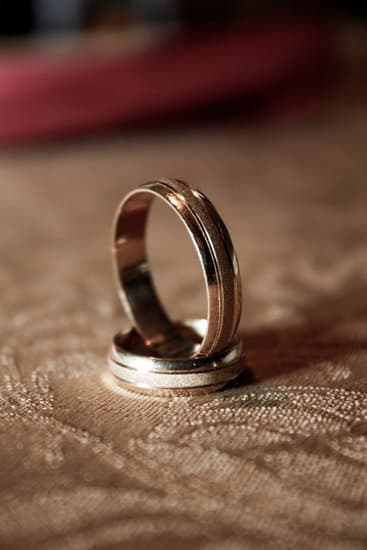What is Wedding Recovery Day? This article aims to delve into the concept of Wedding Recovery Day, its purpose, and why it is crucial for couples after their big day. Weddings are joyous occasions filled with love and celebration, but they can also be incredibly exhausting and emotionally draining. In this section, we will explore the need for a designated day of rest and self-care following a wedding.
After months of planning, coordinating, and celebrating, many couples find themselves in need of some dedicated time to recuperate physically and emotionally. Wedding Recovery Day provides just that – an opportunity to decompress and focus on self-care after the whirlwind of wedding festivities. In this article, we will examine the importance of taking time to recover and explore various ways to make the most of Wedding Recovery Day.
From exploring the emotional and physical toll that weddings can take on individuals to providing tips for planning and activities for Wedding Recovery Day, this article aims to shed light on the significance of prioritizing rest and relaxation after tying the knot. Whether you’ve recently said “I do” or are in the midst of planning your big day, understanding the concept of Wedding Recovery Day is essential for maintaining your well-being during this significant life event.
The Purpose of Wedding Recovery Day
The Emotional Toll of Weddings
Weddings are a culmination of months or even years of planning and anticipation, often accompanied by high levels of stress and anxiety. From managing guest lists and coordinating vendors to addressing family dynamics, weddings can take a significant emotional toll on couples. Additionally, the heightened emotions of the wedding day itself can leave couples feeling emotionally drained in the aftermath. Wedding Recovery Day provides a necessary space for couples to process these emotions and recharge their mental well-being.
The Physical Toll of Weddings
In addition to the emotional strain, weddings can also exact a physical toll on couples. The pressure of looking one’s best, long hours spent standing or dancing during the celebration, and potential lack of sleep can leave individuals physically exhausted.
Wedding Recovery Day allows couples to tend to their physical well-being through rest, proper nutrition, hydration, and gentle exercise if desired. Taking time for relaxation can help alleviate soreness, fatigue, or any other physical strain experienced during the hustle and bustle of wedding festivities.
What Does It Entail?
Wedding Recovery Day may look different for every couple based on their preferences and needs. Some may choose to spend the day engaged in calming activities such as meditation, yoga, or nature walks. Others may opt for pampering themselves with spa treatments or simply enjoying a quiet day at home watching movies or reading books. The key is for couples to customize their Wedding Recovery Day based on what will best replenish their energy levels and promote overall well-being.
The Emotional and Physical Toll of Weddings
After the excitement and whirlwind of a wedding day, many couples may find themselves feeling physically and emotionally drained. The emotional and physical toll of weddings can be significant, as the stress of planning and executing such a momentous event takes its toll on both the mind and body. Here are some common ways in which weddings can impact individuals:
1. Sleep Deprivation: The stress and late-night preparations leading up to the wedding day often result in sleepless nights for both the couple and their families.
2. Emotional Exhaustion: The rollercoaster of emotions experienced during a wedding – from joy and elation to nerves and anxiety – can leave individuals feeling emotionally drained.
3. Physical Strain: On the wedding day, couples are often on their feet for hours, posing for photographs, dancing, and attending to guests, which can lead to physical exhaustion.
In addition to these common challenges associated with weddings, there may also be unexpected factors that contribute to the toll on one’s well-being. All of these reasons underscore why taking time for a Wedding Recovery Day is not only beneficial but necessary for overall health and well-being.
Moreover, prolonged periods of stress can have a detrimental impact on an individual’s mental health, potentially leading to conditions such as anxiety or depression. By acknowledging the emotional and physical toll of weddings, individuals can better understand the need for dedicated recovery time after such a monumental event. Taking time for self-care and relaxation becomes crucial in order to regain balance in both mind and body after experiencing the exhilarating but exhaustive nature of celebrating love.
Self-Care Techniques for Wedding Recovery Day
The concept of Wedding Recovery Day is gaining popularity as couples are realizing the importance of taking time to recover after the hectic and often stressful experience of planning and executing a wedding. This designated day allows newlyweds to focus on self-care and relaxation, and it serves as an opportunity to recuperate from the emotional and physical toll that weddings can take.
Self-care techniques for Wedding Recovery Day play a crucial role in helping individuals unwind, de-stress, and rejuvenate after the whirlwind of their special day.
Unplug and Disconnect
One important self-care technique for Wedding Recovery Day is to unplug from technology and disconnect from the outside world. This means avoiding work emails, social media, and other distractions that may interfere with your ability to truly relax. Taking a break from screens can help reduce stress levels and promote mental well-being.
Indulge in Pampering Activities
Pampering yourself with activities such as spa treatments, massages, or simply enjoying a long bath can help you unwind on Wedding Recovery Day. Treating yourself to these indulgences can provide much-needed stress relief and allow you to focus on yourself without any external pressures.
Engage in Mindfulness Practices
Incorporating mindfulness practices such as meditation, yoga, or deep breathing exercises can be highly beneficial for promoting relaxation on Wedding Recovery Day. These techniques can help calm the mind, reduce anxiety, and increase overall feelings of well-being.
By implementing these self-care tips and tricks for relaxation and rejuvenation into your Wedding Recovery Day plan, you can ensure that you prioritize your mental and physical well-being during this important post-wedding time.
The Importance of Rest and Recovery
After the whirlwind of emotions and events that come with a wedding, many couples find themselves feeling physically and emotionally drained. This is where Wedding Recovery Day comes in. But what is Wedding Recovery Day, exactly? It’s a day specifically set aside for the newly married couple to rest, recover, and take care of themselves after the chaos of tying the knot.
Wedding Recovery Day is crucial for several reasons. First and foremost, weddings are incredibly stressful events, and it’s not uncommon for couples to experience heightened emotions leading up to and during their big day. From managing family dynamics to ensuring that everything goes according to plan, there’s a lot of pressure involved. Additionally, weddings often involve late nights, early mornings, and hours spent on your feet – all of which can take a toll on your physical well-being.
The emotional and physical toll of weddings should not be taken lightly. Studies have shown that the stress of planning and executing a wedding can lead to increased levels of cortisol, also known as the stress hormone. Furthermore, lack of sleep and exhaustion can weaken the immune system, leaving newlyweds susceptible to illness during this vulnerable period. Therefore, taking time for rest and recovery is essential for overall well-being in the aftermath of a wedding.
| Wedding Recovery Day Importance | Reasons |
|---|---|
| Physical Well-Being | Lack of sleep and exhaustion can weaken the immune system. |
| Emotional Well-Being | The stress of planning a wedding can result in increased levels of cortisol. |
Wedding Recovery Day Activities
After the whirlwind of emotions and activities that come with a wedding, it’s important to plan for a day of rest and recovery. Wedding Recovery Day is a concept that is gaining popularity as couples recognize the need to take time for themselves after their big day. It’s a designated day to unwind, relax, and let go of any lingering stress from the wedding. Here are some fun and relaxing ways to spend Wedding Recovery Day:
- Spa Day: Treat yourself to a spa day for some much-needed pampering. Whether it’s a massage, facial, or pedicure, taking time for self-care can help alleviate stress and tension.
- Outdoor Adventure: If you enjoy being active, consider spending the day outdoors. Whether it’s going for a hike, bike ride, or simply taking a leisurely walk in nature, being outside can be rejuvenating.
- Cuddle Up with a Good Book: For some quiet relaxation, pick up a book that you’ve been wanting to read and spend the day getting lost in its pages. Reading can be an excellent way to escape and unwind.
Taking time for yourself after the hectic pace of wedding planning and celebrating is crucial for emotional and physical well-being. By incorporating these activities into your Wedding Recovery Day plans, you can ensure that you’re giving yourself the care and attention you deserve after such an important life event. Remember, this day is about relaxation and rejuvenation, so choose activities that bring you joy and peace.
How to Plan for Wedding Recovery Day
After the whirlwind of planning, celebrating, and the emotional highs of your wedding day, it’s essential to incorporate a Wedding Recovery Day into your post-wedding plans. So, what is Wedding Recovery Day exactly?
It’s a designated day or days (depending on individual preferences) set aside for rest, relaxation, and self-care following the demands of a wedding. This day allows both the bride and groom to recover physically and emotionally from the stress and exhaustion that often accompany wedding celebrations.
Incorporating Wedding Recovery Day into your post-wedding plans requires some intentional thought and preparation. One way to plan for this essential day is by not scheduling anything immediately after your wedding day.
Whether it’s taking time off from work or giving yourself permission to say no to social commitments, prioritizing rest and self-care should be an integral part of your schedule. Setting expectations with family members can also be beneficial in ensuring that you have this necessary time for recovery without feeling guilty about it.
It’s also important to communicate with your partner to align on how you both want to utilize this time. Some may choose to have a complete day of relaxation at home, while others might opt for outdoor activities or even pursuing individual hobbies. The key is making sure that whatever activities you engage in during Wedding Recovery Day contribute positively to your well-being and help you decompress from the events leading up to and including your wedding day.
| Wedding Recovery Tips | Benefits |
|---|---|
| Communicate with family about taking time off | Rejuvenation after a stressful event |
| Create open communication with partner about plans | Helping prioritize rest and relaxation |
The Benefits of Wedding Recovery Day
In conclusion, Wedding Recovery Day is a crucial part of the post-wedding period that allows newlyweds to recuperate physically and emotionally from the exhaustion and stress of the big day. This dedicated time for self-care and relaxation can have a profoundly positive impact on individuals, couples, and their relationships. By understanding the purpose of Wedding Recovery Day and exploring the benefits it offers, couples can prioritize their well-being while transitioning into married life.
Taking time for rest and recovery is not only important for physical health but also for mental and emotional well-being. The emotional toll of weddings, combined with the physical demands of planning and executing the event, can leave individuals feeling drained and overwhelmed.
Wedding Recovery Day provides an opportunity to step back from the chaos and focus on self-care techniques that promote relaxation, rejuvenation, and overall wellness. By prioritizing this time for rest, individuals can reduce stress levels, improve mood, and gain a renewed sense of energy.
Ultimately, Wedding Recovery Day activities are not only enjoyable but also essential for promoting a healthy start to married life. Whether it’s indulging in a spa day, taking a leisurely nature walk, or simply enjoying some quiet time at home, these activities can help couples reconnect with themselves and each other after the whirlwind of wedding festivities.
By incorporating Wedding Recovery Day into their post-wedding plans and recognizing its benefits, couples can set a positive tone for their future together by prioritizing self-care and well-being.
Frequently Asked Questions
How Do You Recover From a Wedding Weekend?
Recovering from a wedding weekend typically involves getting plenty of rest, hydrating, and taking time to relax and unwind. Depending on how eventful the wedding was, you may also need some time to recuperate from any late nights or dancing.
It’s important to listen to your body and give yourself permission to take it easy after such a big celebration.
What Happens the Day After a Wedding?
The day after a wedding is often a mix of emotions for the newlyweds and their loved ones. For the couple, it may involve reflecting on the special day, opening wedding gifts, and possibly even beginning the process of sending thank-you notes.
For guests and family members, it’s a time to reminisce about the wedding, perhaps share photos with each other, and recover from any post-celebration fatigue.
What to Do After an Afternoon Wedding?
After an afternoon wedding, there are various options for how to spend the remainder of the day. Guests might choose to continue celebrating by attending an evening reception or after-party if there is one planned.
Alternatively, they could use the rest of the day as an opportunity for relaxation or exploration in a new location if the wedding took place away from home. The key is to find a balance between enjoying the festivities and taking care of oneself after a joyous but potentially tiring occasion.

I have been involved in marriages for over 20 years helping couples and singles understand more about them.





